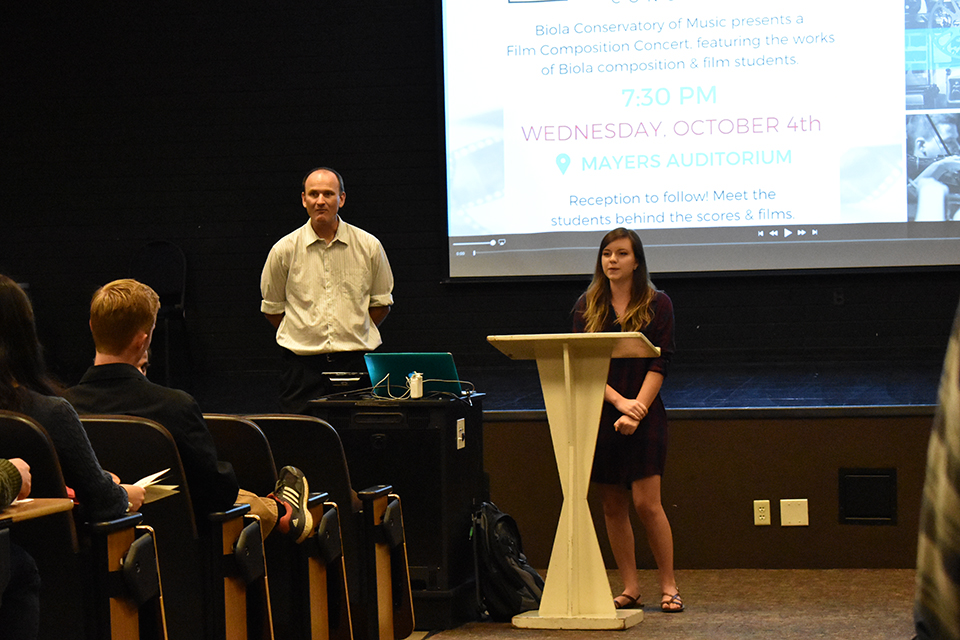Caitlin Foster, senior music composition major, loves the renowned film scores such as Lord of the Rings and anything from John Williams or Danny Elfman. She studies at the conservatory in order to follow in the footsteps of these great artists and become a film composer. Perhaps one of the least thought of aspects of filmmaking, film scoring plays a fundamental role in the experience films seeks to create. It proves to be a specialized part of the industry, one that filmmakers cannot do themselves. The filmmakers seek out people like Foster to help compose the film score.
The spotting session
The process begins with a simple meeting with the director. They talk about the director’s vision for the score and the composer watches the film as they begin writing the score.
“We’ll do what’s called a spotting session and that’s where you’ll watch it with the director and you’ll make notes, mostly about where the music will come in and out,” Foster said. “I usually watch it several times and then I’ll start on a scene.”
Although film scorers will usually play the piano as they watch the film, Caitlin plays the violin. She usually begins by writing for her violin and then using it to compose the melodies she will use in the film. Film composers will use digital audio workstations such as Digital Performer to help them compose their score. The software has virtual instruments that enable the composer to hear what a string section or a brass section sounds like.
“You’ll import the film into [the software] so then you have it played back with you as you’re scoring to it,” Foster said.
In film scoring, they also have to think about which instruments to use and how many of them to use. This usually comes down to the vision of the director, but the texture of the score also has an influence on the mood and emotions the filmmakers want to create.
A combined vision
“There’s a huge difference between going [with] a full orchestral score and just piano and soft strings, or maybe it’s even more on the pop side … or electronic,” Foster said. “Different instruments do specific things better. Having a higher violin is really good for maybe a sad moment, but then the solo cello could also do that in a lower register. Piano, I always find, is good for reflective things and it’s a very versatile instrument.”
An astonishing amount of work goes into film scoring and it remains a crucial part of filmmaking, which oftentimes remains unknown. The conservatory hosted their second annual Film Composers Concert for students who have written scores for different films on Oct. 4. Foster, along with seven others, were featured in the concert.
These students have done the bulk of their work on cinema and media arts student’s films. The concert uniquely combined aspects of both departments by playing music composed by students as well as the films they worked on.







